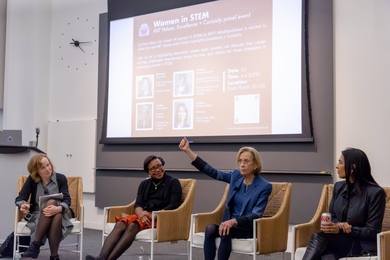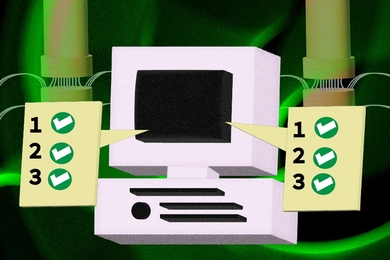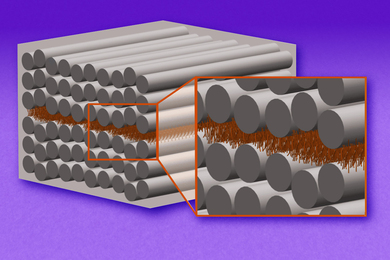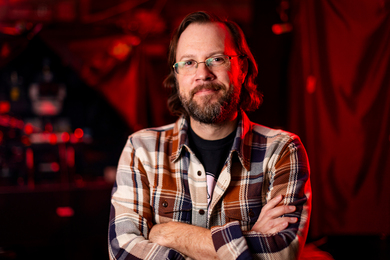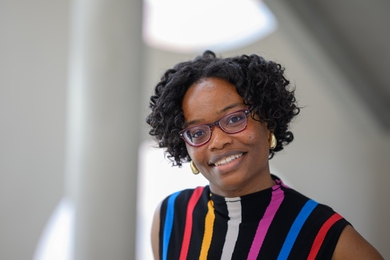The slump in the nation's mood and economy has not been acccompanied by a slump in ideas at MIT. The Technology Licensing Office received 135 patents last year, making it second in the nation behind the University of California's 10 campuses, which had a total of 431 patents for the same period.
And one week last month, an invention licensed from the Technology Licensing Office (TLO) received FDA approval for a second use, while two other inventions went into Phase III trials. Professor Robert Langer was involved in all three of the inventions, and Professor Ram Sasisekharan was the principal investigator on one.
"All three of these events are relatively rare. Together their announcements made 'SuperWeek,'" said Lita Nelsen, director of the TLO.
"The number of patents [for 2002] is nice, but the feeling of celebration comes from those patents leading to real products--and companies and jobs--and, in the case of products, particularly ones that help people. We're bringing the results of research into the market and into daily life," she said.
The TLO staff of 30 didn't celebrate, Nelsen said. "Too busy." But clearly they're feeling the results of a job well done. In 2001, MIT had 125 patents; the UC system had 402.
Caltech ranked third with 109 patents for 2002. Stanford is fourth with 104 in 2002; the University of Texas ranked fifth with 93. The numbers quickly drop after that, down to 49 patents for 10th-ranked Michigan State.
The product gliadel, licensed by Guilford Pharmaceuticals, has been used to treat one form of brain cancer and was approved by the FDA last month for treatment of another type of tumor. Gliadel is a dime-sized wafer placed in the brain to deliver chemotherapy as it dissolves (MIT Tech Talk Oct. 2, 1996). It was the result of 17 years of work by Langer, the Germeshausen Professor of Chemical and Biomedical Engineering, and colleagues.
Acusphere, an MIT startup, began Phase III clinical trials for an ultrasound contrast agent that detects coronary artery disease in patients with ischemic heart disease. The agent was designed by Langer.
Neutralese, a drug used to neutralize anticoagulants during cardiac surgery, also entered Phase III clinical trials. It is one of several products to come from Sasisekharan's work with heparin (MIT Tech Talk Jan. 29, 2003). Sasisekharan is an associate professor of biological engineering. Neutralese is licensed by Biomarin Pharmaceuticals.
A version of this article appeared in MIT Tech Talk on March 19, 2003.

